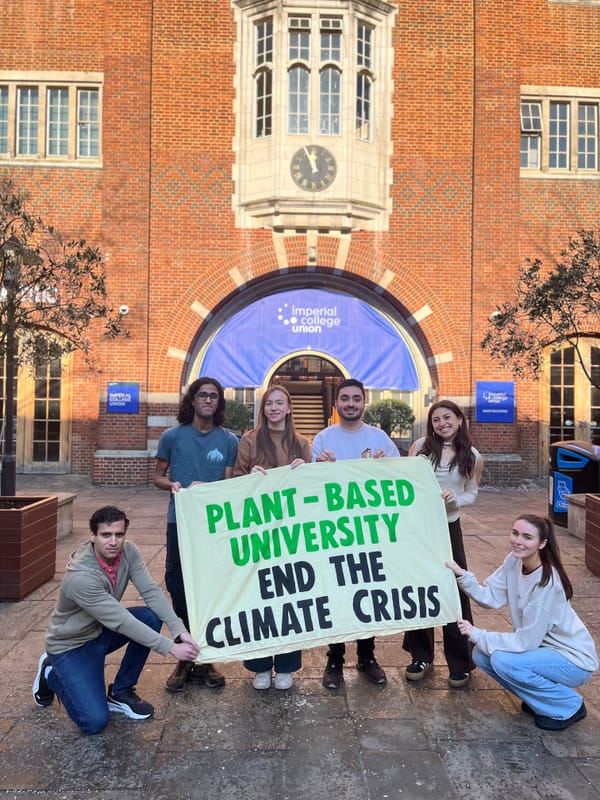RCSU to allow AI in essay-writing competition
New category introduced judging applications on “exceptional use of AI in submission creation.”
The Royal College of Science Union's (RCSU) annual Science Challenge has allowed entrants to use AI tools in their submissions for the first time. The Challenge, now in its 18th year, has created a new category and prize for "AI innovation", judging students on their "technical innovation and creative application of AI tools while maintaining academic integrity."
The competition is being sponsored by Compu.J, a software consultancy firm with a key focus on AI and machine learning. The winner of the AI challenge will receive a paid internship at Compu.J working with the Machine Learning research and development team. Compu.J is founded by Dr Jad Marrouche, who also established the RCSU's Science Challenge during his tenure as the constituent union's president in 2006-7.

The Science Challenge is a science communication competition, whereby entrants "produce a short piece" in either written or video form. Since its inception, the competition has evolved from a single category essay competition into multiple categories across media and has been judged by many leading science communicators, such as Pallab Ghosh from BBC Sky at Night, author Simon Singh, and YouTube creator Simon Clark. Open to all Imperial students across undergraduate and Master's courses, as well as a joint competition for school students in the last three years of their secondary education, the Challenge has received essays from across the globe.
Part of the motivation for allowing AI usage is because Marrouche has always "push[ed]" for "innovation". His company has expanded from offering private cloud and cybersecurity to moving into the machine learning and AI space as part of its services. Compu.J's view is that the widespread use of Al is inevitable and, rather than restrict its use, they have decided to encourage innovation over limitation.
As part of the new rules, any AI use must have "complete documentation", with any source code, instructions on how it was used, and an explanation of how the AI was utilised to be included in a three-page technical report. Evaluation for the Compu.J prize is based on how novel its use has been. "Our ethos is Al is an enabling tool. We're not using it to replace anybody. We're using it to enable people," said Marrouche.
Whilst, the Faculty of Natural Sciences, the faculty which the RCSU belongs to, has no single AI policy, departments such as Life Sciences have banned the use of generative AI due to a reliance on essay-based assessment. Despite this, RCSU president Julia Purrinos said, "there's not been any backlash at all". She has received several emails from students eager to compete in the AI challenge.
Purrinos explained "the boundaries of artificial intelligence are constantly expanding, and through new initiatives like the AI innovation prize, we're helping to drive that progress and encourage students to think beyond conventional limits in academia. Having Compu.J involved really strengthens this vision."









